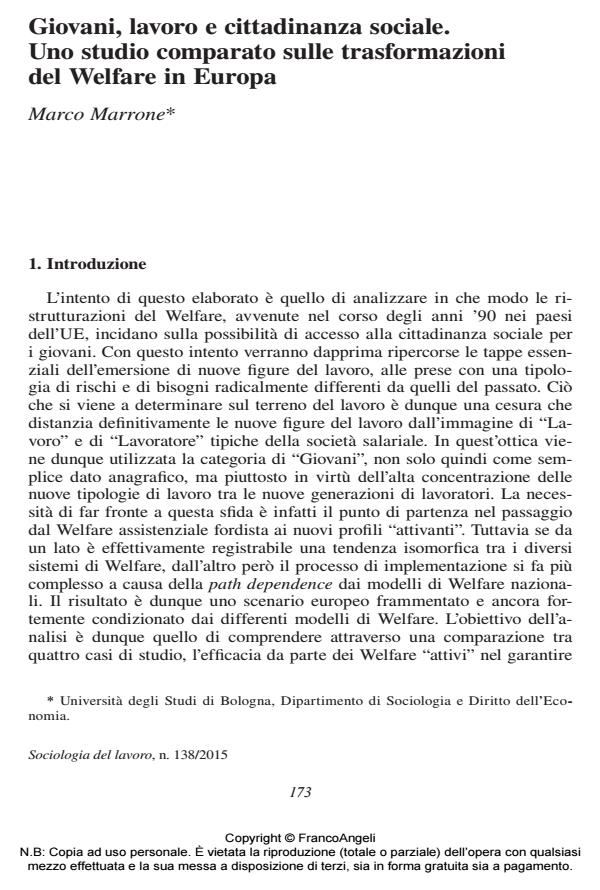Youth, work and social citizenship. A comparative study on the transformation of welfare in Europe
Journal title SOCIOLOGIA DEL LAVORO
Author/s Marco Marrone
Publishing Year 2015 Issue 2015/138
Language Italian Pages 17 P. 173-189 File size 151 KB
DOI 10.3280/SL2015-138011
DOI is like a bar code for intellectual property: to have more infomation
click here
Below, you can see the article first page
If you want to buy this article in PDF format, you can do it, following the instructions to buy download credits

FrancoAngeli is member of Publishers International Linking Association, Inc (PILA), a not-for-profit association which run the CrossRef service enabling links to and from online scholarly content.
The aim of this paper is to analyze in which way the transformation of the Welfare State in Europe has taken place, in order to answer to the challenges posed by the new paradigms of work and the impact on the possibility for the youth to get access to social citizenship. The paper will affirm that the concept of the "active Welfare State", even if it is characterized by a willingness to surpass the degeneration of welfarism, it still remains strongly attached to the notion that social citizenship can be attained only through the fulfillment of the citizen’s duty to work. Nonetheless in those countries which have invested more than others on Active Policies it is possible to notice that the youth has gained employment, but the introduction of coercive instruments to accept any kind of work seems to produce a difficulty for the youth to get access to social citizenship. The paper concludes with the affirmation that the needs of the new generation of workers require a new kind of universal social citizenship that overtake the stiff of the nexus between work and citizenship.
Keywords: Youth, unemployment, social citizenship, Welfare State, activation policies, comparative studies
Marco Marrone, Giovani, lavoro e cittadinanza sociale. Uno studio comparato sulle trasformazioni del Welfare in Europa in "SOCIOLOGIA DEL LAVORO " 138/2015, pp 173-189, DOI: 10.3280/SL2015-138011